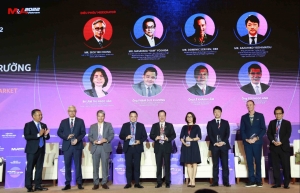Harmonisation highlighted for success in merger and acquisition post-deal period
What are typically the major reasons of failed attempts and deal abandonments?
 |
| Seck Yee Chung, partner at Baker McKenzie Vietnam |
In general, there are numerous factors that may lead to post-deal failure. Before that, perhaps the key stakeholders and parties were not diligent enough in examining the current business model or operations, or clear enough as to their respective objectives, agendas or expectations as to what the business model or operations may be like post-deal.
Post-deal, and implementation from paper to action, is always challenging and there may be various obstacles to a successful integration and implementation. It could be resistance from employees because of significant difference in work culture or business model.
It may be that the personalities at the leadership level are not aligned or not able to work well with each other – in particular, this is more likely to happen when the key persons that successfully negotiated the deal are not the same persons who actually implemented the new business post-deal.
There may also be external factors that are somewhat beyond the control of the business – for example, it may be that the customer base is just not attracted by the new business approach or products. Or it could be global issues like the pandemic that totally disrupts many sectors.
What is the route to harmonise benefits of two sides and form a successful integration strategy after a takeover?
Pre-deal, it is important for the key stakeholders to be diligent and transparent about their expectations and plans post-deal. Preferably, the leaders and personalities that negotiated the deal are actively involved in implementing the post-deal business.
After the fact, it is important to have clear and uniform messaging to both employees and the market about changes in the business model approach, as well as products and services.
Regarding foreign investors, what are your recommendations when conducting a deal in Vietnam and post-merger?
It is important for them to have a good understanding of the business models, work culture, customer preference, and legal framework in Vietnam as relevant to their desired target and sector. There must be no assumption that what the foreign investor is accustomed to would necessarily apply to or work in Vietnam.
Whilst it is understandable that they may or should change when implementing a new business approach post-deal, it is also important to keep an open mind and listening ear as to what may or may not work so well – and take this into consideration in case adjustments may be needed. This requires patience and fortitude.
 | 'M&A opportunities in a volatile market' session at the Vietnam M&A Forum 2022 Session 1 of the "M&A opportunities in a volatile market" of the Vietnam M&A Forum 2022, was moderated by Seck Yee Chung, partner at Baker & McKenzie Vietnam. Keynote speakers analysed the fluctuations in major economies such as the United States, Japan, EU and their affect on M&A in developing countries and Vietnam in particular. |
 | Pauses put paid to real estate M&A Difficulties in legal procedures are slowing down the flow of real estate mergers and acquisitions from foreign investors, with some units pausing or restructuring their strategies. |
What the stars mean:
★ Poor ★ ★ Promising ★★★ Good ★★★★ Very good ★★★★★ Exceptional
Related Contents
Latest News
More News
- Citi economists project robust Vietnam economic growth in 2026 (February 14, 2026 | 18:00)
- Sustaining high growth must be balanced in stable manner (February 14, 2026 | 09:00)
- From 5G to 6G: how AI is shaping Vietnam’s path to digital leadership (February 13, 2026 | 10:59)
- Cooperation must align with Vietnam’s long-term ambitions (February 13, 2026 | 09:00)
- Need-to-know aspects ahead of AI law (February 13, 2026 | 08:00)
- Legalities to early operations for Vietnam’s IFC (February 11, 2026 | 12:17)
- Foreign-language trademarks gain traction in Vietnam (February 06, 2026 | 09:26)
- Offshore structuring and the Singapore holding route (February 02, 2026 | 10:39)
- Vietnam enters new development era: Russian scholar (January 25, 2026 | 10:08)
- 14th National Party Congress marks new era, expands Vietnam’s global role: Australian scholar (January 25, 2026 | 09:54)

 Tag:
Tag:



















 Mobile Version
Mobile Version